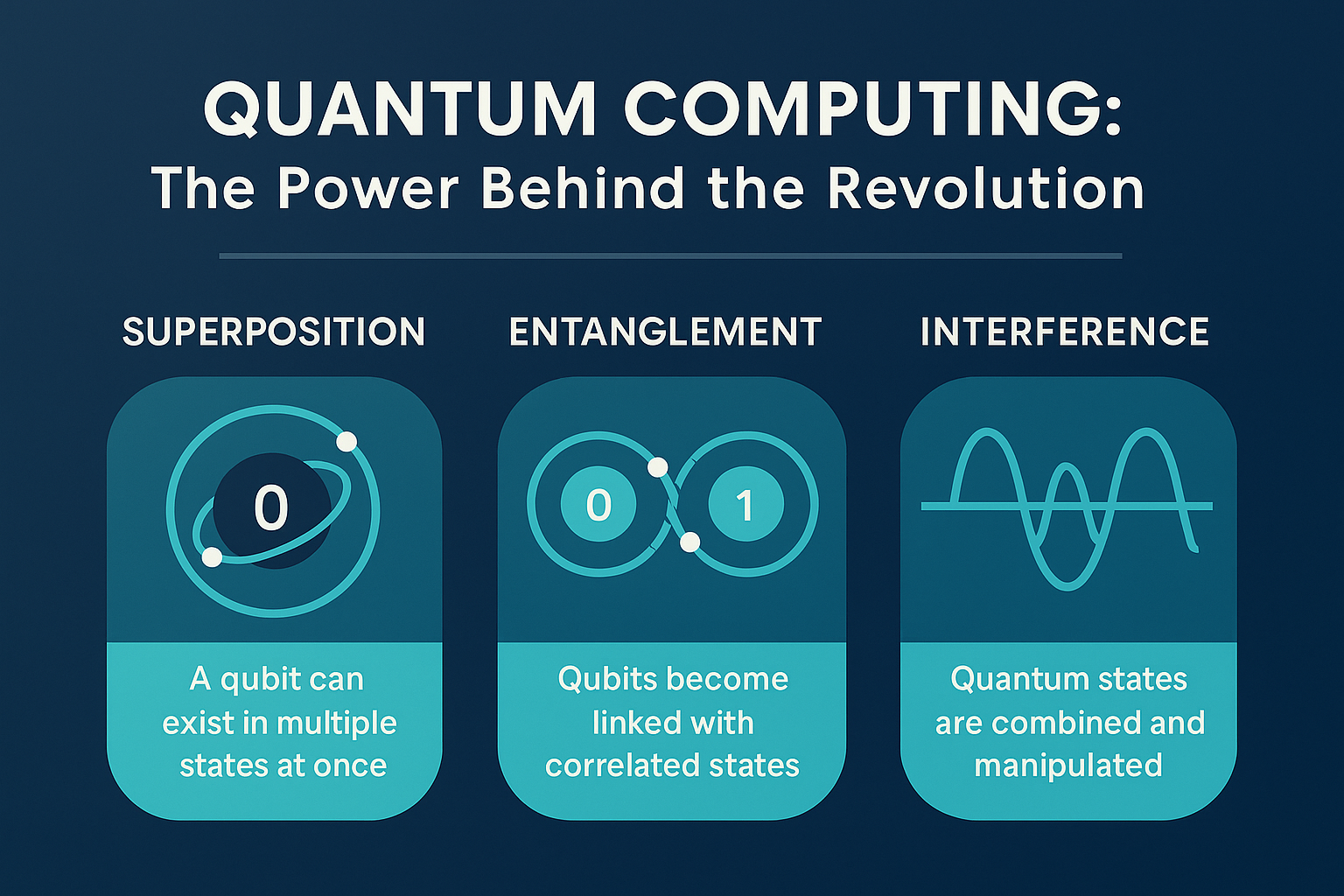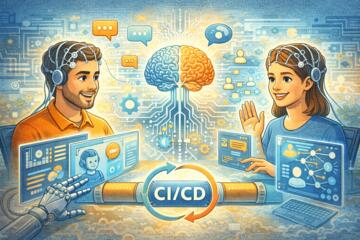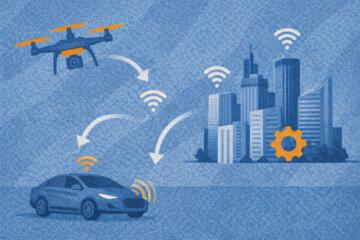Imagine a computer so powerful it could unravel today’s most secure encryption in seconds, model the molecular structure of a new life-saving drug in minutes, or simulate the birth of the universe with unparalleled precision. This isn’t the stuff of science fiction—it’s the promise of quantum computing, a revolutionary technology that leverages the counterintuitive rules of quantum mechanics. Unlike classical computers that process information in binary (0s and 1s), quantum computers use qubits, which can exist in multiple states simultaneously. This shift doesn’t just mean faster computing—it opens doors to fundamentally new ways of solving problems. But with that power comes profound ethical, scientific, and societal consequences.

⚛️ The Strange Science Behind the Power
To understand quantum computing, meet its three core principles:
-
🌀 Superposition – A qubit can be 0, 1, or both at once. This lets quantum systems explore multiple solutions simultaneously.
-
🔗 Entanglement – Entangled qubits influence each other instantly, even across distance. This creates powerful computational correlations.
-
🎯 Interference – Helps amplify the right answers and cancel the wrong ones.
Together, these principles allow quantum machines to solve certain problems that would take classical computers millions of years.
🚨 A Revolution in Waiting
Quantum computing isn’t just fast—it’s disruptive.
🔓 Cybersecurity Under Threat
Most of today’s digital encryption relies on math that’s too complex for classical machines to break. But quantum algorithms like Shor’s could change that overnight.
-
“Harvest now, decrypt later” is already in play—some actors are stockpiling encrypted data to crack it in the future.
-
Governments and companies are racing to develop quantum-resistant encryption.
🧬 Transforming Medicine and Materials
Quantum systems can natively model quantum chemistry, unlocking:
-
New drug development pipelines
-
Superconductors that work at room temperature
-
Catalysts for cleaner industrial production
📦 Optimizing the Unthinkable
Quantum computing will revolutionize industries based on optimization:
-
🚚 Logistics & traffic flow (Volkswagen already tested this!)
-
💹 Finance & portfolio management
-
🌦️ Weather forecasting
-
🧬 Personalized medicine
🏁 Who’s Leading the Quantum Race?
It’s a global sprint:
-
Google, IBM, Microsoft are leading private-sector innovation with different architectures (superconducting qubits, trapped ions, etc.).
-
China, the U.S., the EU and others are investing billions into national quantum programs.
This is more than a tech race—it’s a battle over future cybersecurity, intelligence, and economic power.
🧊 Why Quantum Isn’t Ready—Yet
We’re in the NISQ (Noisy Intermediate-Scale Quantum) era:
-
Qubits are fragile and prone to noise.
-
Systems require ultra-cold environments colder than space.
-
Quantum decoherence limits how long calculations can last.
-
Error correction is a huge scientific hurdle still being solved.
👉 Experts estimate 5–15 years until fault-tolerant, scalable quantum computers arrive.
⚖️ Quantum Power, Ethical Responsibility
With quantum’s arrival, tough questions follow:
-
Who controls quantum decryption power?
-
How do we prevent monopolies on quantum tech?
-
What happens when quantum computing meets AI?
Like nuclear tech, quantum is dual-use—capable of curing disease or enabling surveillance and warfare. Its development must be guided by ethics, law, and inclusion.
🛠️ Preparing for the Quantum Future
We can’t wait passively—we must shape it.
✅ Educators must teach quantum literacy.
✅ Governments must regulate development and security.
✅ Technologists must build ethical, inclusive systems.
✅ Citizens must stay informed and demand accountability.
🚀 Beyond Imagination
Quantum computing isn’t just another faster chip. It redefines what’s even possible to solve. With it, we’ll simulate nature, predict complex systems, and reimagine industries.
But as with any transformative force, the outcome won’t be determined by the machines alone—it will depend on the choices we make.
We’re no longer asking if quantum computing will change the world—only how, and for whom.






